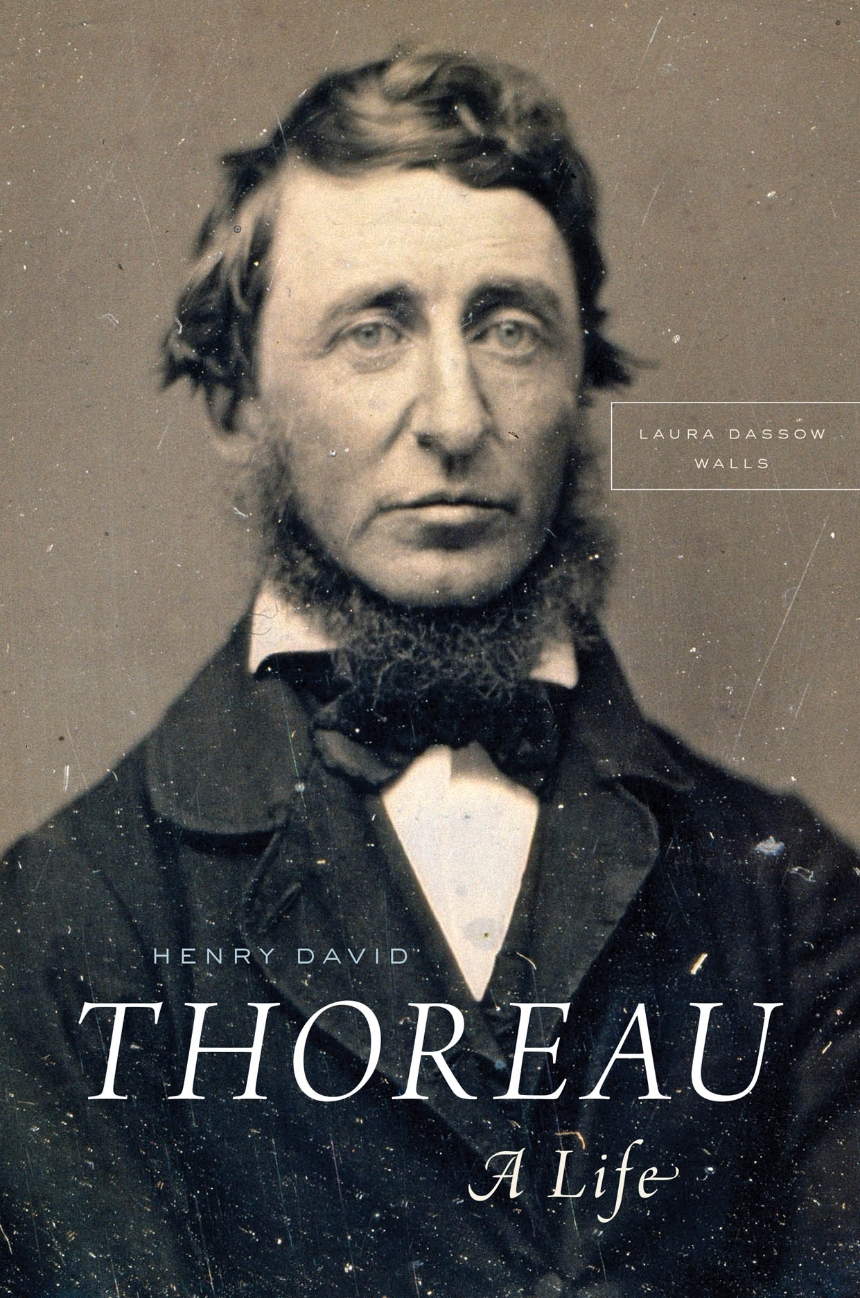Henry David Thoreau
A Life
But there was much more to Thoreau than his brief experiment in living at Walden Pond. A member of the vibrant intellectual circle centered on his neighbor Ralph Waldo Emerson, he was also an ardent naturalist, a manual laborer and inventor, a radical political activist, and more. Many books have taken up various aspects of Thoreau’s character and achievements, but, as Laura Dassow Walls writes, “Thoreau has never been captured between covers; he was too quixotic, mischievous, many-sided.” Two hundred years after his birth, and two generations after the last full-scale biography, Walls restores Henry David Thoreau to us in all his profound, inspiring complexity.
Walls traces the full arc of Thoreau’s life, from his early days in the intellectual hothouse of Concord, when the American experiment still felt fresh and precarious, and “America was a family affair, earned by one generation and about to pass to the next.” By the time he died in 1862, at only forty-four years of age, Thoreau had witnessed the transformation of his world from a community of farmers and artisans into a bustling, interconnected commercial nation. What did that portend for the contemplative individual and abundant, wild nature that Thoreau celebrated?
Drawing on Thoreau’s copious writings, published and unpublished, Walls presents a Thoreau vigorously alive in all his quirks and contradictions: the young man shattered by the sudden death of his brother; the ambitious Harvard College student; the ecstatic visionary who closed Walden with an account of the regenerative power of the Cosmos. We meet the man whose belief in human freedom and the value of labor made him an uncompromising abolitionist; the solitary walker who found society in nature, but also found his own nature in the society of which he was a deeply interwoven part. And, running through it all, Thoreau the passionate naturalist, who, long before the age of environmentalism, saw tragedy for future generations in the human heedlessness around him.
“The Thoreau I sought was not in any book, so I wrote this one,” says Walls. The result is a Thoreau unlike any seen since he walked the streets of Concord, a Thoreau for our time and all time.
640 pages | 44 halftones | 6 x 9 | © 2017
History: American History
Literature and Literary Criticism: American and Canadian Literature
Philosophy: American Philosophy
Reviews
Table of Contents
Enclosures and Commons
The Genesis of Musketaquid
The Coming of the English
Living the Revolution
Part I
The Making of Thoreau
Chapter 1
Concord Sons and Daughters
The Early Years of John and Cynthia Thoreau
Making Concord Home
Chapter 2
Higher Learning from Concord to Harvard (1826–1837)
A Harvard Portrait
Learning to Leave Harvard
Chapter 3
Transcendental Apprentice (1837–1841)
Transcendental Self-Culture
Concord Social Culture
The Thoreau School
“There is no remedy for love but to love more”
Compensations
Chapter 4
“Not till We Are Lost” (1842–1844)
“Surely joy is the condition of life!”: New Friends, New Ventures
Thoreau on Staten Island
The Road to Walden
Part II
The Making of Walden
Chapter 5
“Walden, Is It You?” (1845–1847)
On Walden Pond: The First Season
Going to Extremes I: Thoreau in Jail
Going to Extremes II: Thoreau on Katahdin
Leaving Walden
Chapter 6
A Writer’s Life (1847–1849)
“Lectures multiply on my desk”: Thoreau Finds His Audience
“Civil Disobedience”
A Basket of Delicate Texture: Weaving Thoreau’s Week
Chapter 7
From Concord to Cosmos: Thoreau’s Turn to Science (1849–1851)
“Even this may be the year”: 1850
“The captain of a huckleberry party”
Chapter 8
The Beauty of Nature, the Baseness of Men (1852–1854)
The Hermit at Home
The Higher Law from Chesuncook to Walden
Reading Walden
Part III
Successions
Chapter 9
Walden-on-Main (1854–1857)
Illness and Recovery
“The infinite extent of our relations
Chapter 10
Wild Fruits (1857–1859)
Life in the Commons: Village, Mountain, River
“A Transcendentalist above all”: Thoreau and John Brown
Chapter 11
A Constant New Creation (1860–1862)
“The West of which I speak”: Thoreau’s Last Journey
“The leaves teach us how to die”
Acknowledgments
Abbreviations
Notes
Bibliography
Awards
Choice Magazine: CHOICE Outstanding Academic Title Awards
Won
Phi Beta Kappa: Christian Gauss Award
Won
Los Angeles Times: Los Angeles Times Book Prizes
Won
